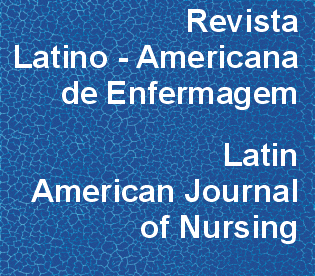Burden, Coping, Physical Symptoms and Psychological Morbidity in Caregivers of Functionally Dependent Family Members
DOI:
https://doi.org/10.1590/S0104-11692013000400015Abstract
OBJECTIVES: this study assessed burden, coping, physical symptoms and psychological morbidity in caregivers of functionally dependent family members. METHODS: fifty family caregivers completed self-reported measures of burden, physical symptoms, psychological morbidity and coping strategies. RESULTS: there was a significant negative correlation between coping strategies and the different clinical variables, as well as a significant positive correlation between coping strategies and duration of care. It appears that the stronger bond between caregiver and family member leads to a poorer use of adaptive coping strategies. It also appears that the deterioration of the relationship between them and the lower perceived self-efficacy are more prominent in caregivers of family members with cognitive impairment, indicating that caregivers with family members without cognitive impairment face fewer difficulties. CONCLUSION: these results emphasize the need for interventions to include coping strategies, since they are important in reducing caregivers' burden, psychological morbidity and physical symptoms.Downloads
Download data is not yet available.
Downloads
Published
2013-07-01
Issue
Section
Original Articles
License
RLAE’s authorship concept is based on the substantial contribution by each of the individuals listed as authors, mainly in terms of conceiving and planning the research project, collecting or analyzing and interpreting data, writing and critical review. Indication of authors’ names under the article title is limited to six. If more, authors are listed on the online submission form under Acknowledgements. The possibility of including more than six authors will only be examined on multicenter studies, considering the explanations presented by the authors.Including names of authors whose contribution does not fit into the above criteria cannot be justified. Those names can be included in the Acknowledgements section.
Authors are fully responsible for the concepts disseminated in their manuscripts, which do not necessarily reflect the editors’ and editorial board’s opinion.
How to Cite
Burden, Coping, Physical Symptoms and Psychological Morbidity in Caregivers of Functionally Dependent Family Members . (2013). Revista Latino-Americana De Enfermagem, 21(4), 935-940. https://doi.org/10.1590/S0104-11692013000400015



